UT Energy Week 2017
Speakers & Panelists
B
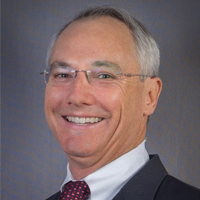
Ross Baldick
Professor Department of Electrical and Computer Engineering
Evolving ISO Market Design: TX, CA, NY & Mexico
Dr. Ross Baldick is a Professor in the Department of Electrical & Computer Engineering at The University of Texas at Austin and holds the Leland Barclay Fellowship in Engineering.
He received his B.Sc. and B.E. degrees from the University of Sydney, Australia and his M.S. and Ph.D. from the University of California, Berkeley. From 1991-1992 he was a post-doctoral fellow at the Lawrence Berkeley Laboratory. In 1992 and 1993 he was an assistant professor at Worcester Polytechnic Institute.
Dr. Baldick has published over seventy-five refereed journal articles and has research interests in a number of areas in electric power. His current research involves optimization, economic theory, and statistical analysis applied to electric power system operations, the public policy and technical issues associated with electric transmission under electricity market restructuring, the robustness of the electricity system to terrorist interdiction, electrification of the transportation industry, and the economic implications of integration of renewables.
His book, Applied Optimization, is based on a graduate class, “Optimization of Engineering Systems” that he teaches in the electrical and computer engineering department at The University of Texas. He also teaches a three-day short-course “Introduction to Electric Power for Legal, Accounting, and Regulatory Professionals” and a one-day short-course “Locational Marginal Pricing” for non-technical professionals in the electricity industry. He is a former editor of IEEE Transactions on Power Systems and former chairman of the System Economics Sub-Committee of the IEEE Power Engineering Society Power Systems Analysis, Computation, and Economics Committee. Dr. Baldick is a Fellow of the IEEE and the recipient of the 2015 IEEE PES Outstanding Power Engineering Educator Award.
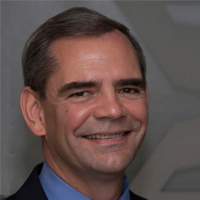
Fred Beach
Assistant Director for Policy Studies Energy Institute, UT Austin
Grid of the Future: Centralized or Distributed?
Dr. Beach is the Assistant Director for Energy & Technology Policy at the Energy Institute. He is responsible for conducting research and supervising studies related to the development of Energy Policy, Environmental Policy, and Technology Policy. Dr. Beach also teaches Energy Technology Policy and International Energy Policy in the Cockrell School of Engineering and McCombs School of Business.
Prior to joining The University of Texas at Austin, Dr. Beach served for 25 years in the U.S. Navy, where he was a qualified Submariner, Naval Aviator, Surface Warfare Officer, and Acquisition Professional. Since retiring in 2003 he has served as a consultant on defense-related topics for the U.S. Chief of Naval Operations Strategic Studies Group, MITRE, Naval Research Advisory Committee, Naval Research Laboratory, Defense Advanced Research Projects Agency, and the Defense Science Board.
Dr. Beach holds a Ph.D. from the LBJ School of Public Affairs, University of Texas at Austin; an M.S. in Physics from the Naval Postgraduate School; and a B.S. in Chemistry with a minor in Nuclear Engineering from the University of Oklahoma. He is also a graduate of the Defense Acquisition University and Certified Level III DoD Acquisition Professional and Program Manager.
C

Patrick Chapman
Senior Director – Development SunPower Corporation
Integrating Renewables into the Grid
Patrick Chapman is a Senior Director of Development at SunPower Corporation, where he leads advanced development projects in power electronics for solar applications. Prior to this, he was a co-founder and the Chief Technology Officer at SolarBridge Technologies, Inc., which was acquired by SunPower in 2014. Prior to that, he was an Associate Professor at the University of Illinois at Urbana-Champaign. He received a Ph.D. from Purdue University in 2000, and the Bachelor’s and Master’s degrees in electrical engineering from the University of Missouri-Rolla in 1996 and 1997. He has received young alumni awards from Purdue University and the University of Missouri-Rolla. He was named the Richard M. Bass Outstanding Young Power Electronics Engineer in 2006. His primary technical interests within solar power include microinverters, ACPV modules, and energy storage applications.
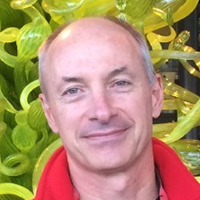
Richard Chuchla
Director Energy and Earth Resources Master’s Program, UT Austin Jackson School of Geosciences
Changing Supply & Demand in the Energy Sector
Richard received his undergraduate degree in geology from Cornell and his Masters degree from the University of Texas. He retired from ExxonMobil in 2015 as an executive with a 35-year career. He has broad experience in minerals (base and precious metals), coal, oil and gas exploration, development, research and management, including a corporate assignment as upstream strategic advisor to the Management Committee and CEO. Richard worked in basins and has participated in discoveries around the world in deepwater and onshore (unconventional and conventional resources). He was recently appointed as the Director of the Energy and Earth Sciences (EER) graduate program and the Leslie Bowling Professor in Geological Sciences at the University of Texas-Austin. EER is a multidisciplinary program administered by the Jackson School of Geosciences with faculty from the Cockrell School of Engineering, the McCombs School of Business, and the LBJ School of Public Affairs and the School of Law.
D
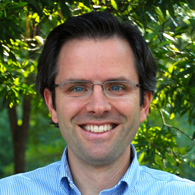
Gavin Dillingham
Program Director, Clean Energy Policy Houston Advanced Research Center (HARC)
Dr. Gavin Dillingham is Program Director for Clean Energy Policy at the Houston Advanced Research Center. Dr. Dillingham joined HARC in 2012 and focuses much of his efforts on better understanding the innovation and adoption of policies across state and local governments. This research has resulted in the development of predictive models that are used to help key policy and decision makers to better understand their policy environment and opportunities that exist for policy making. Dr. Dillingham also leads a variety of federal and state funded projects focusing on clean energy financing and investment across industry sectors. He also directs the Department of Energy’s Southwest Combined Heat and Power Technical Assistance Partnership which focuses on improving resilience of communities and reducing energy waste through increased investment in CHP. Dr. Dillingham received his PhD from Rice University in Political Science in 2008. He also teaches the Policy Planning class at Rice.

Roger Duncan
Research Fellow Energy Institute, UT Austin
The Changing Consumer-Utility Relationship
Roger Duncan is a Research Fellow with the Energy Institute and a Research Associate at the Center for International Energy and Environmental Policy at The University of Texas at Austin. In addition, Roger serves on the Board of Directors of the Alliance to Save Energy, and is Chairman of the Board of the Pecan Street Project, an Austin smart grid initiative.
A former General Manager of Austin Energy, the municipal utility for Austin, Texas, Roger was twice elected to the Austin City Council, serving from 1981 to 1985. In 2005, Business Week magazine recognized Roger as one of the top 20 carbon reducers in the world. He has a B.A. from the University of Texas at Austin with a major in philosophy.
E
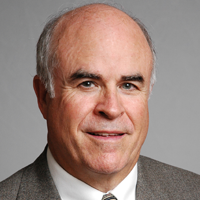
Thomas Edgar
Director
Professor Thomas F. Edgar, a chemical engineer who has been on The University of Texas at Austin faculty for more than 40 years, serves as the director of the Energy Institute. Edgar holds the George T. and Gladys H. Abell Chair in Chemical Engineering. He received his B.S. in chemical engineering from the University of Kansas and the Ph.D. from Princeton University. He served as Department Chair of Chemical Engineering (1985-93), Associate Dean of Engineering (1993-96), and Associate Vice President for Academic Computing (1996-2001) at UT Austin. For the past 40 years, Edgar has concentrated his academic work in process modeling, control, and optimization. He has published over 450 articles and book chapters. He has supervised the thesis research of over 45 M.S. and 80 Ph.D. students. Edgar has co-authored the textbooks Coal Processing and Pollution Control Technology (Gulf Publishing, 1983), Optimization of Chemical Processes (McGraw-Hill, 2001) and Process Dynamics and Control (Wiley, 2010). He was President of the American Institute of Chemical Engineers (AIChE) in 1997. He is board secretary of Pecan Street Inc. in Austin, Texas, which deals with renewable energy and smart grids. He is a member of the National Academy Engineering. Dr. Edgar’s current energy research covers renewable energy, combined heat and power, energy storage, and improved oil recovery. In the area of teaching, Edgar initiated a popular engineering elective, “Energy Technology and Policy,” in 2005 and has co-taught a similar signature course for students outside of engineering.
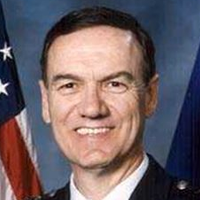
Ken Eickmann
Lieutenant general United States Air Force (Ret)
Lieutenant General Kenneth E. Eickmann is commander, Aeronautical Systems Center, Air Force Materiel Command, Wright-Patterson Air Force Base, Ohio. In this capacity, he leads the Air Force’s center of excellence for research, development and acquisition of aircraft, aeronautical equipment and munitions. He manages more than 2,800 programs ranging from basic research to design, development and support of advanced aeronautical systems. He executes an annual budget of more than $11 billion and employs a work force of approximately 12,000 people located at Wright-Patterson Air Force Base and 35 locations worldwide. As the installation’s commander he provides operational support for approximately 22,000 people, including personnel from more than 100 operational units collocated on base.
The general was born in San Antonio, Texas, and entered the Air Force in 1967 as a distinguished graduate of the University of Texas’ Reserve Officer Training Corps program. He has been a reliability and maintainability engineer on the F-106 and C-5 aircraft, and an F100 engine systems manager and division chief at an air logistics center and at the Air Staff. He has served as principal military adviser to the assistant secretary of the Air Force for research, development, acquisition and logistics; director of maintenance at an air logistics center; deputy chief of staff for logistics, Pacific Air Forces; chief of staff, staff director, and later, director of logistics, Air Force Materiel Command, and commander, Oklahoma City Air Logistics Center, the largest military and industrial complex in the Department of Defense. The state of Oklahoma declared July 11, 1995 “General Ken Eickmann Day” in recognition of his leadership and assistance to federal and state rescue and recovery efforts following the April 19, 1995, bombing of the Alfred P. Murrah Building in Oklahoma City. A recognized expert in propulsion technology, he has published several papers in technical journals in the United States and overseas.
F
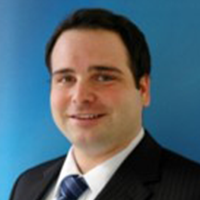
James Faulk
Director KPMG Strategy
The Changing Consumer-Utility Relationship
James is a Director in KPMG’s Strategy practice serving clients in the power and utility industry. He has 12 years of experience developing business model, operating model, growth and performance improvement strategies. James began his consulting career in KPMG’s IT Advisory practice working with clients across a wide range of industries to create IT enabled transformation solutions. He spent four years with KPMG Australia helping clients navigate government-led reforms to the power and utilities sector and designing responses to the complex challenges and opportunities that were emerging from technological innovations in the industry. Most recently, James has worked with U.S. utilities on developing renewable generation market energy strategies, utility of the future operating model transformation programs and customer strategies. He lives in Atlanta, Ga with his wife and two daughters and holds a B.S. and M.S from the University of Florida and a M.B.A. from Emory University.
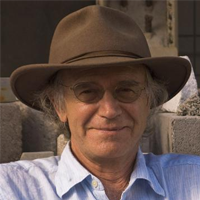
Pliny Fisk III
Co-Director Center for Maximum Potential Building Systems
With a background in architecture, landscape architecture, and the systems sciences, Pliny has made pivotal contributions to the sustainability movement for more than four decades by developing replicable prototypes, protocols and policy initiatives. His prototypes challenge conventional wisdom about building design, engineering, materials, economic development, and landscape and regional planning. Pliny’s seminal life cycle-based protocols helped shape the first green building program, and influenced many more. He has collaborated on federal demonstration greening efforts, including the Greening of the White House and Greening of the Grand Canyon, and on scores of other pivotal projects such as the EpiCenter building in Montana, the University of Texas Health Science Center in Houston, and the Seattle Justice Center, and on Solar Decathlon entries with the University of Texas (2002) and Texas A&M University (2007). His policy initiatives, including the Austin Green Building Program, the AIA’s Environmental Resource Guide, and greening the Texas Architecture + Engineering Guidelines, have established new protocols with broad implementation. Pliny’s has received several national and international recognitions including the Lewis Mumford Award, the 1992 Earth Summit Award (with the City of Austin), the U.S. Green Building Council’s Sacred Tree Award, and The Passive Solar Pioneer Award. In 2006, Metropolis Magazine recognized Pliny as one of 14 Visionaries; in 2008, Texas Monthly called him one of “35 People Who Will Shape Our Future”; his work has appeared in numerous media. Pliny was on the faculty at Ball State University, The University of Texas at Austin, and Texas A&M University, and held teaching positions at the University of Oklahoma and Mississippi State University. He also served as an advisor to the MacArthur, Gates, and Enterprise Foundations and served as a Peer Professional for the GSA. He is an inventor, as well as CEO and founder of two proactive private sector technology companies: Sustainable Earth Technologies and the EcoInventorium.

Peter Flemings
Research Scientist UT Austin Institute for Geophysics, Jackson School of Geosciences
The Energy Frontier: How to Invest in Future Resources?
Dr. Flemings’ research couples observation with theoretical analysis to study crustal fluid flow at human and geologic timescales. He explores classical questions such as:
- What is the relationship between faulting, pressure, and stress?
- What is the permeability of the shallow crust and how does it vary with stress and pore pressure?
- How is continental margin morphology controlled by fluid flow?
- How do hydrocarbons move at both geological and production time scales?
- What is the mechanism by which gas and oil vents form?
- How are methane hydrate deposits generated?
- How do we predict pore pressure in basins?
- Under what conditions will blowouts form?
- How can we design and drill safe and economic wells?
Dr. Flemings works closely with the Integrated Ocean Drilling Program (IODP), studies fluid pressure in the Nankai Accretionary Prism and helped develop a pore pressure penetrometer for ocean drilling. He leads an industry-supported research consortium (UT GeoFluids) that combines geomechanical modeling, experimental analysis, and field study to study pore pressure and fluid flow in basins. He is fascinated by methane hydrates, and his research group simulates them in the lab and models their formation. Most recently, Dr. Flemings is leading a new initiative to drill methane hydrates in the Gulf of Mexico. Finally, his team studies the permeability and deformation of mudstones in the GeoMechanics laboratory.
G
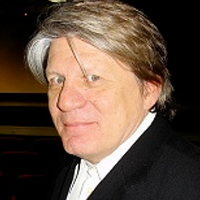
Michael Garrison
Professor UT Austin School of Architecture
Professor Michael Garrison is currently active in the design and construction of sustainable buildings. He has served as the faculty sponsor of the 2002, 2005, 2007 and 2015 Solar Decathlon competitions administered by the U.S. Department of Energy. He is currently principal investigator for a Zero Net Energy highrise tower for Shreveport, Louisiana, sponsored by Community Renewal International. Garrison’s research has received numerous grants and awards from the U.S. Environmental Protection Agency, National Renewable Energy Lab, U.S. Department of Energy, U.S. Department of Housing and Urban Development, U.S. Department of Interior, National Park Foundation, Texas Energy Advisory Council, Texas Energy and Natural Resources Advisory Council, Texas Department of Housing and Community Affairs, and Austin Energy’s Green Building Program.
Professor Garrison is the author of a number of publications including Passive Solar Homes for Texas (1982) and Building Envelopes, with Randall Stout (NCARB 2004). He is past chair of the Resource Management Commission for the City of Austin, a founding member of the Texas Solar Energy Society, a research fellow of the UT Center for Sustainable Development and a faculty affiliate of the UT Energy Institute.

Allen Gilmer
Co-founder, Chairman and Chief Executive Officer Drillinginfo
Prior to co-founding Drillinginfo in 1999, Allen Gilmer was an independent oilman for seven years, co-founding three profitable exploration & production companies. He began his oil patch career with Marathon Oil Corporation, as a geophysicist working in research, seismic acquisitions, and South American exploration. Mr. Gilmer is active in all aspects of Drillinginfo’s new product development and is widely recognized for his leadership and vision. He holds several patents in the field of component seismology. He earned a Bachelor of Arts degree in Geology from Rice University and a Master of Science in Geology from University of Texas at El Paso.
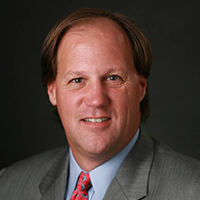
Jimmy Glotfelty
Executive Vice President Clean Line Energy Partners
Jimmy Glotfelty is a founder of Clean Line Energy and serves as Executive Vice President, primarily focusing on commercial activities and regulatory and public affairs.
Jimmy brings to Clean Line more than twenty five years of electric sector and transmission knowledge, in both the public and private sectors. He is a well-known expert in electric transmission, generation, energy policy, and energy security fields and speaks frequently at industry conferences. Prior to Clean Line, Jimmy was Vice President, Energy Markets, for ICF International and developed their NERC Compliance practice.
Jimmy worked for George W. Bush, for almost eight years, at both the gubernatorial and presidential levels. He led the Bush Administration’s efforts on electricity issues with Congress and the electric utility industry. In this capacity, he founded Office of Electric Delivery and Energy Reliability at the Department of Energy (DOE) and served as its first Director. This program is responsible for applied transmission and distribution (T&D) research and led to the creation of the nationally recognized GridWise Alliance. While at DOE Jimmy led the U.S. efforts to investigate the northeast blackout of August 2003 which called for the adoption of many technologies that have greatly improved the reliability of U.S. transmission system today. Jimmy serves on the board of the Southeast Coastal Wind Coalition and the Tennessee Advanced Energy Business Council and recently rolled off of the American Wind Energy Association (AWEA) Board of Directors.
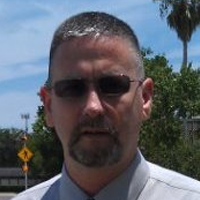
Michael Goin
IT Manager Austin Energy
Michael Goin, CISSP, served in the US Air Force from 1989 to 1995 in radio, cryptography, and job management specialties and achieved the rank of Staff Sergeant. After graduating from the University of Texas at Austin with a BBA in Management Information Systems in 1997, he worked for two years as an IT Systems Administrator with Exxon-Mobil in Houston where he assisted geologists integrate and manage large data sets in their upstream division. Since 1999, he has worked as an IT Systems Administrator and Information Security Manager for Austin Energy, where he is currently responsible for information security, incident response, and regulatory compliance.

Russell Gold
Senior Energy Reporter Wall Street Journal
Energy Companies of the Future: Oil, Gas & More
Russell Gold is an award-winning investigative journalist at The Wall Street Journal and was the inaugural Energy Journalism Fellow at the University of Texas.
He started his journalism career at the Philadelphia Inquirer and the San Antonio Express-News. In 2000, he joined The Wall Street Journal and covered Texas and economics, before switching to energy in 2002. His reporting has taken him to five continents and above the Arctic Circle twice.
In 2010, he was part of the Wall Street Journal team that covered the Deepwater Horizon explosion and oil spill. The Journal’s work was awarded the Gerald Loeb Award for best business story of the year and was a finalist for the Pulitzer Prize in National Reporting.
His book, The Boom, was a finalist for the FT Goldman Sachs Business Book of the year prize in 2014.
He earned a B.A. in history from Columbia University in 1993. He lives in Austin with his wife and two children.
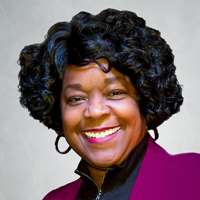
Paula Gold-Williams
President & Chief Executive Officer CPS Energy
The Changing Consumer-Utility Relationship
Paula Gold-Williams was named President & Chief Executive Officer in July 2016 after serving nine months in an interim role. Since 2008, she has served CPS Energy as Group Executive Vice President – Financial & Administrative Services and Chief Financial Officer (CFO) & Treasurer for the nation’s largest gas and electric municipal utility. She also has served in other capacities such as chief administrative officer and controller.
Gold-Williams joined CPS Energy in 2004 after holding various positions in several San Antonio businesses, including regional controller for Time-Warner Cable and vice president of finance for Luby’s, Inc. Gold-Williams is a Certified Public Accountant and a Chartered Global Management Accountant.
She earned an Associate of Fine Arts degree from San Antonio College, a Bachelor of Business Administration, with a concentration in Accounting from St. Mary’s University, and a Master of Business Administration, in Finance & Accounting from Regis University.
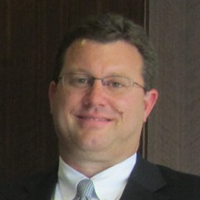
Corey Grindal
Vice President of Supply Cheniere Energy
Changing Supply & Demand in the Energy Sector
J. Corey Grindal is Vice President of supply at Cheniere Energy. He joined Cheniere in 2013 and is responsible for the gas and power supply at Cheniere’s facilities. This includes acquiring and managing transportation capacity, enabling and managing the relationships with suppliers and markets, buying and hedging the required commodity, and managing any load disruptions. He has more than 20 years of experience in engineering and project management, operations, energy trading and risk management. Prior to joining Cheniere, Mr. Grindal was with Deutsche Bank managing physical and financial trading for their natural gas business. Prior to Deutsche Bank, he worked with Louis Dreyfus and the Tenneco/ El Paso regulated natural gas pipelines. Mr. Grindal received his Bachelor of Science in Mechanical Engineering with Honors from The University of Texas.

Gürcan Gülen
Senior Energy Economist Bureau of Economic Geology, Jackson School of Geosciences
Changing Supply & Demand in the Energy Sector
Dr. Gülen is a Research Scientist and Senior Energy Economist at Bureau of Economic Geology’s Center for Energy Economics, The University of Texas at Austin, where he investigates and lectures on energy value chain economics and commercial frameworks. Since the late 1990s, he worked on oil, natural gas and electric power projects in North America, South Asia, West Africa, and Caucasus among others, focusing on the economics, policy and regulation of resource development and delivery, and power market design. He consulted or published on electricity market restructuring, renewables policies and transmission in several jurisdictions worldwide. He has been working in BEG’s interdisciplinary team to assess shale gas and oil resources in the U.S. and CEE’s natural gas demand assessment in the electric power, industrial and transportation sectors.
He has been involved in developing and instructing in professional and university courses on energy value chain economics since the early 2000s, including Executive MBA courses by the McCombs School of Business at UT-Austin and McCombs Executive Programs for Sinopec, CNOOC, and ExxonMobil among others. Between 2001 and 2010, CEE ran its own energy value chain course, educating close to 350 delegates representing energy ministries, regulators, and companies from 40 countries in regular Houston and custom sessions.
Dr. Gülen has published in peer reviewed and industry publications, and presents regularly to a wide range of audiences. He served in the U.S. Association for Energy Economics in various positions and was the editor of USAEE Dialogue for several years. He is a USAEE Senior Fellow. He serves on the Editorial Board of Utilities Policy. He is also a member of the Society of Petroleum Engineers, American Economic Association and Gulf Coast Power Association. He received a Ph.D. in Economics from Boston College and a B.A. in Economics from Bosphorus University in Istanbul, Turkey.
H
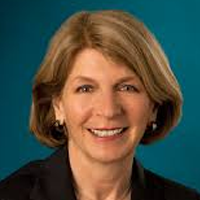
Dede Hapner
Vice President, FERC and ISO Relations Pacific Gas and Electric Company
Evolving ISO Market Design: TX, CA, NY & Mexico
Dede Hapner, Vice President, FERC and ISO Relations for Pacific Gas and Electric Company, is responsible for developing, coordinating and managing policy, compliance and cost recovery with the Federal Energy Regulatory Commission and the California Independent System Operator.
Hapner joined PG&E in 1985 as a regional public affairs representative after previously managing several government projects and NGOs. Since then, she has held positions of increasing responsibility in the company’s public, governmental and regulatory affairs departments. She was named Vice President, Regulatory Relations for the utility in 1998, moved to PG&E Corporation as Vice President, Special Projects in 2001, and from 2004 through September 2005, she led the utility’s governmental relations department on an interim basis. She was named Vice President, Federal Regulatory Policy and Rates in 2005. She was named to her current position in January 2006.
Hapner holds a bachelor’s degree in political science and a master’s degree in American politics with an emphasis on quantitative methods from the University of Michigan. She also has an M.B.A. from the University of San Francisco. She currently is co-chair of The Keystone Center Board of Trustees. Keystone is a nonpartisan, science-based NGO that brings parties from all sectors together to resolve difficult public policy issues. Hapner is also a member of the University of Michigan Erb Institute Strategic Advisory Council.
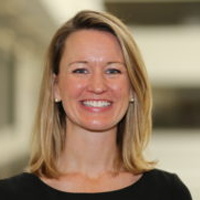
Dana Harmon
Executive Director Texas Energy Poverty Research Institute
The Changing Consumer-Utility Relationship
Dana Harmon has 13 years of leadership and management experience in the energy and consumer products industries. As Executive Director of TEPRI, Ms. Harmon has overall strategic and operational responsibility for execution of TEPRI’s mission to collect actionable data that industry partners can utilize to mitigate the energy costs of low-income consumers across Texas. Ms. Harmon brings experience from two prior start-ups, an engineering background, and a broad skillset in project management, operations, marketing, business development, and technology commercialization.
Prior to joining TEPRI, Ms. Harmon spent seven years in the oil and gas industry. She led the marketing and business development functions for an Austin Technology Incubator start-up providing geophysical technology to upstream operators. In this role, she drove the company’s first successful product launch, developed a robust opportunity pipeline, led demand generation activities, and managed several research projects with academia and industry in the United States and the Middle East.
Ms. Harmon worked previously in Houston, Texas where she managed the global marketing activities for a laboratory start-up bringing to market new exploration technologies serving oil and gas clients. In this role she was responsible for product management, market intelligence, brand development, and financial reporting for offices in the US, Colombia, Brazil, and the Middle East. She led joint industry projects focused on solving common challenges for operators and worked closely with clients, R&D, and operations teams to deliver value to her clients.
Ms. Harmon spent several years in management consulting, advised her clients on supply chain solutions including performance management programs, network strategies, and facilities and systems implementations across the United States.
Ms. Harmon earned a B.S. in Industrial and Systems Engineering from the Georgia Institute of Technology in Atlanta. She has received a Texas Venture Labs Award for Excellence in Energy Innovation, a certification in Marketing Strategy for Business Leaders from Cornell University, and is a Prosci™ certified Change Management Instructor. Her volunteer work includes serving on the advisory board for a local private school, serving on her neighborhood’s community enhancement committee, volunteering with Child Advocates.
A native of Mississippi, Ms. Harmon enjoys live music and all things outdoors and is now very proud to call Austin home.
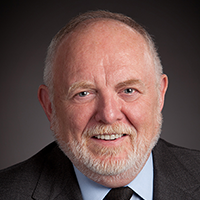
Robert Hebner
Director Center for Electromechanics
Dr. Robert Hebner is the Director of the Center for Electromechanics. The Center develops advanced technology, generally in the areas of power and energy, and teams with companies to get the technology into the market. Prior to joining UT, Dr. Hebner was the acting Director of the National Institute of Standards and Technology (NIST), He also served as Deputy Director of NIST and the Director of NIST’s Electronics and Electrical Engineering Laboratory. Dr. Hebner also worked in the Office of Management and Budget, at Sandia, and at the Advanced Research Projects Agency of the Department of Defense.
Throughout his career, Dr. Hebner has been active in technical activities having received a Ph.D. in physics and having authored or coauthored more than 115 technical papers and reports. He is a past vice president for technical activities of the IEEE, a 400,000+ member engineering society.
He is a Fellow of IEEE, a Member of American Physical Society, a Member of American Association for the Advancement of Science. Awards he has received include the U.S. Department of Commerce Gold, Silver, and Bronze Medals and the 1990 Harry Diamond Memorial Award.

Scott Hinson
Director of Engineering Pecan Street Inc
Scott leads activities and electrical research at the Pike Powers Lab. He worked at a thin film CIGS solar module manufacturer where he led module packaging, performance, certification and reliability efforts. Prior efforts include work in the military, medical, consumer and oil industries developing power supplies, precision measurement equipment and inductive heating technologies. Scott received his B.S.E.E. from The University of Texas at Austin with undergraduate specializations in both communications systems and power distribution. Scott was awarded the 2015 Outstanding Engineering Award for “transforming the world’s understanding of consumer and community electricity usage” by the the IEEE Power Engineering Society Central Texas Chapter.
I
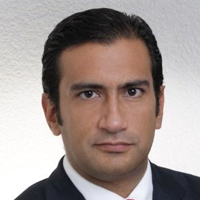
Jose Maria Lujambio Irazábal
Attorney Cacheaux, Cavazos & Newton (CCN)
Evolving ISO Market Design: TX, CA, NY & Mexico
José María Lujambio Irazábal worked for many years in several professional positions in the Mexican government. From 2009 to 2012, he served as General Legal Counsel of the Mexican Energy Regulatory Commission, where he was responsible for leading the implementation of Mexico’s 2008 energy reforms, both in the gas and renewable energy sectors. From 2005 to 2009, he worked as an attorney within the Legal Counsel’s Office of Mexico’s President, concentrating on legislative and presidential rulings, and constitutional matters. At the beginning of President Felipe Calderón’s administration, he coordinated a multidisciplinary group of advisers working with the General Director of the Mexican Social Security Institute. He also served as legal adviser to the Undersecretary of Political Development at the Mexican Department of the Interior from 2001 to 2002, and for the President of the Chamber of Deputies from 1999 to 2000.
In the academic arena, Mr. Lujambio taught Energy Law at the Autonomous Technological Institute of Mexico (ITAM), and he coordinated the energy research agenda of the Center of Research for Development (CIDAC), both in 2013. He has published essays and articles on energy regulation and constitutional law topics. During his years at the ITAM, he worked as a research assistant to Professors Rodolfo Vázquez, José Ramón Cossío and Fernando Franco.
K
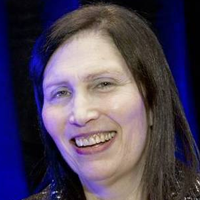
Marianne Kah
Chief Economist ConocoPhillips
Changing Supply & Demand in the Energy Sector
Marianne Kah is the chief economist and manager of business and market analysis for ConocoPhillips.
She is responsible for developing the company’s market outlooks for oil and natural gas, as well as conducting regional and special strategic studies. She also is the company’s expert in scenario planning. She is based in Houston.
Prior to joining Conoco, Kah had been manager of planning at Cabot Corporation, a chemicals company in Boston; a planner at the U.S. Synthetic Fuels Corporation; and a management analyst in the Energy and Minerals Division of the U.S. General Accounting Office in Washington, D.C., where she conducted energy policy studies for the U.S. Senate Energy and Natural Resources Committee and U.S. House of Representatives energy subcommittees.
She has presented her views at major conferences around the world and is the primary author or co-author of a number of papers published in major industrial journals as well as government reports on various aspects of petroleum markets.
She was a past president of the United States Association for Energy Economics, and received a Senior Fellow Award for that organization. Kah formerly served on the Executive Council of that organization’s National Capital Area chapter and was President of the Houston chapter. She has also served as the Chair of the Committee on Economics and Statistics of the American Petroleum Institute.
An economist by training, Kah holds a bachelor of science degree from Cornell University and a master of public administration degree from the Maxwell School of Citizenship and Public Affairs at Syracuse University.
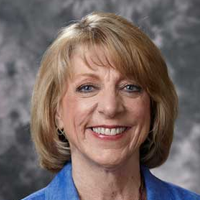
Debbie Kimberly
Vice President, Customer Energy Solutions Austin Energy
The Changing Consumer-Utility Relationship
Vice President of Customer Energy Solutions Deborah Kimberly joined Austin Energy in January 2013. This division is responsible for the utility’s energy efficiency and demand response programs, green building program, advanced transportation, market analytics, and key accounts, which serves Austin Energy’s largest customers.
Kimberly has worked in the utility industry for more than 30 years and spent more than 22 years at the Salt River Project in Central Arizona. Most recently, she was Salt River’s director of customer programs and marketing, where she was responsible for energy efficiency product design and implementation; marketing of all products, price plans, and services; measurement and evaluation; and market research. Previous roles included managing Salt River’s financial services and involvement in public policy and strategic planning initiatives.
Kimberly serves on the program advisory committee of the Consortium for Energy Efficiency and is an executive sponsor of the Austin Energy Pecan Street Working Group and the Texas Fuel Independence Project. She also is a new board member of SPEER, the South-Central Partnership for Energy Efficiency as a Resource. While in Arizona, Kimberly served on the board of directors of the Maricopa Health Foundation and the Desert Foothills Habitat for Humanity Chapter.
Kimberly earned a Bachelor of Arts in international relations from Stanford University and a Master’s degree in international management from the Thunderbird School of Global Management in Arizona.
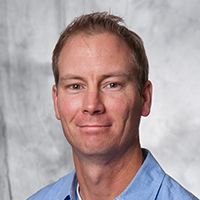
Carey King
Assistant Director Energy Institute, UT Austin
The Energy Frontier: How to Invest in Future Resources?
Dr. Carey W. King performs interdisciplinary research on how energy systems interact within the economy and environment, and how competing factors affect societal decisions and tradeoffs and policy development. Dr. King’s research goals center on rigorous interpretations of the past performance of energy systems to determine the most probable future energy pathways.
In addition to his role as Assistant Director at the Energy Institute, Dr. King is a Research Associate with the Center for International Energy and Environmental Policy within the Jackson School of Geosciences. He has both a B.S. with high honors and a Ph.D. in Mechanical Engineering from the University of Texas at Austin.
Dr. King has published technical articles in the academic journals Environmental Science and Technology, Environmental Research Letters, Nature Geoscience, Energy Policy, Sustainability, and Ecology and Society. He also has written commentary for Earth magazine on the interactions of water, energy and economics. Dr. King has three patents as former Director for Scientific Research at Uni-Pixel Displays, Inc.
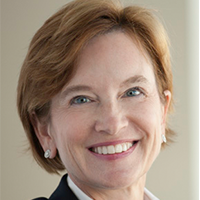
Johnna Van Keuren
Vice President, New Energies Shell
Energy Companies of the Future: Oil, Gas & More
Johnna Van Keuren’s career with Shell began in 1999, and she presently serves as the Vice President Wind Operations and Health, Safety, Security, and Environment (HSSE) in Shell’s New Energies business. Prior to being named to her current role, Johnna was the Vice President, Safety Environment and Sustainable Development in the Exploration & Commercial organization of Shell. Johnna has more than 20 years of professional experience in the petroleum industry. She graduated with a degree in Mathematics and French from Vanderbilt University, and a Mechanical Engineering degree from University of Missouri at Rolla. Johnna has a daughter in college. She enjoys spending time with her family as well as playing tennis, reading, walking and travel.
L
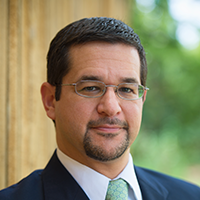
Doug Lewin
VP, Regulatory Affairs and Market Development CLEAResult
Doug Lewin leads CLEAResult’s policy efforts. Headquartered in Austin, Texas, CLEAResult designs, markets, and implements energy efficiency programs for over 250 utilities and businesses in 40 states and provinces.
Prior to joining CLEAResult, Lewin was the founding Executive Director of the South-central Partnership for Energy Efficiency as a Resource (SPEER). SPEER was recognized by the US Department of Energy as the regional energy efficiency organization (REEO) for Texas and Oklahoma, working with a network of REEOs throughout the US to advance energy efficiency.
Lewin worked at the Texas Legislature for five years, primarily on clean energy issues for three different elected officials in the House and Senate. Lewin earned his Bachelor’s and Master’s degrees from the University of Texas at Austin.
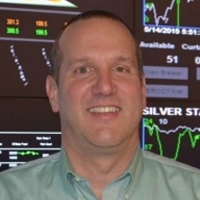
Michael Liebman
Senior Vice President, Operations BP Wind Energy
Energy Companies of the Future: Oil, Gas & More
BP Wind Energy Senior VP, Operations Mike Liebman has over 25 years of experience in technical, operations and commercial roles in the energy industry.
Mike began his career in Amoco Chemical Company as a Research engineer, applying process modelling, simulation and economic evaluation tools to petrochemical process design, optimization and control. After the merger between Amoco and BP in 1998, he moved into the commercial arena, including working in strategy and chemicals trading before moving into BP’s midstream business.
Over the next seven years, he held positions of increasing accountability in commercial joint venture and asset management, divestments, operations and engineering for BP’s US Pipelines and Logistics, including as many as 14,000 miles of oil, gas and refined product pipelines and 80 distribution terminals. He led regional operations during the organization’s largest divestment, with accountability for supporting the transaction, while ensuring safe, compliant and uninterrupted operations. As Projects, Engineering and Technical Services Manager, he was a core member of the business unit leadership team, leading an organization of up to 200 staff accountable for major capital project delivery and engineering and technical expertise.
In 2012, Mike was tapped for a special assignment in commercial strategy for one of BP’s largest fuels value chains, with refining, distribution, retail and marketing spanning the eastern half of the U.S. In 2014, Mike joined BP Wind Energy in his current role, with accountability for safe and compliant operations of 14 wind farms, the remote operations center, and technical and engineering staff. He has represented BP Wind Energy on the management committees for seven wind farm project joint ventures. Throughout his career, Mike has demonstrated a passion for leading and developing people and organizations.
Mike holds a Ph.D. and M.S. from the University of Texas at Austin and a B.S. from Clemson University, all in Chemical Engineering.

Alan Lloyd
Senior Research Fellow Energy Institute, UT Austin
The Energy Frontier: How to Invest in Future Resources?
Alan C. Lloyd is currently a Senior Research Fellow at the Energy Institute, University of Texas at Austin. The focus of his research is the role of hydrogen in a sustainable society, fuel cells, electric drive vehicles, renewable energy and policies to promote zero emissions vehicles.
Dr. Lloyd served as the President of the International Council on Clean Transportation from 2006 until 2013. He is one of the founding members of the ICCT. Dr. Lloyd served as the Secretary of the California Environmental Protection Agency, appointed by Governor Arnold Schwarzenegger in December 2004. Dr. Lloyd served as Chairman of the Air Resources Board, California Environmental Protection Agency, State of California, appointed by Governor Gray Davis in February 1999 and re-appointed by Governor Arnold Schwarzenegger in August 2004 before his appointment to Secretary.
Prior to joining CARB, Dr. Lloyd was the Executive Director of the Energy and Environmental Engineering Center for the Desert Research Institute at the University and Community College System of Nevada, Reno, and the chief scientist at the South Coast Air Quality Management District from 1988 to 1996.
Dr. Lloyd’s work focuses on the viable future of advanced technology and renewable fuels, with attention to urban air quality issues and global climate change. He is a proponent of efficiency, alternate and renewable fuels, and electric drive and fuel cell vehicles eventually leading to a zero emissions transportation system.
Dr. Lloyd earned both his B.S. in Chemistry and Ph.D. in Gas Kinetics at the University College of Wales, Aberystwyth, U.K.

Bob Lukefahr
Director Nat G ® CNG Solutions
Energy Companies of the Future: Oil, Gas & More
Bob Lukefahr is the Co-Founder and Director at Nat G® CNG Solutions. He is a twenty year veteran of the Energy industry, former CEO of Tessera Solar and former President of BP Wind Energy and BP Power Americas. Bob also served as Head of Strategy for BP’s Gas Power & Renewables Segment and its Integrated Supply & Trading business. Before joining BP, Bob was a partner at the strategy-consulting firm Booz Allen Hamilton (now part of PWC). Bob holds an MBA from The Wharton School of Business at the University of Pennsylvania with concentrations in finance and operations management and A.B. from the University of North Carolina at Chapel Hill. He is a veteran of the US Air Force and has served on several boards, including the American Wind Energy Association.
Bob lives in Houston with his wife Keo and his two children, Alex and Reagan. He is an active member of Ecclesia Houston and is also active in the Kairos Prison Ministry for the Huntsville Unit and the Eastham Unit.
M

Schonna R. Manning
Director of R&D UTEX Culture Collection of Algae
The Energy Frontier: How to Invest in Future Resources?
Dr. Schonna R. Manning began her career in phycology more than a decade ago investigating bloom-forming algae. She earned a Ph.D. in Plant Biology from UT-Austin in 2010 and was presented the Research Excellence Award. During her postdoc, she aided with the development of novel methods for the extraction, separation, and identification of lipids relevant to the production of microalgae for biofuels and high-value natural products. Presently, Dr. Manning is the Director of R&D at the UTEX Culture Collection of Algae (UTEX CCA) where she oversees projects related to microalgal strain selection and the analysis of biomass composition. Her research integrates metabolomics-based techniques to unravel the synthesis of unique natural products, intersecting disciplines of biochemistry, molecular biology, and analytical chemistry. Dr. Manning’s group investigates diverse strains from the UTEX Collection to assess practical applications of microalgae for fuels, feedstocks, nutraceuticals, and specialty chemicals. Related projects evaluate the large-scale production of microalgae, including photobioreactor optimization, as well as harvesting and oil recovery using UT’s OpenAlgae Processing Technologies. Dr. Manning also assists with the development and instruction of educational workshops at UTEX. She is presently the Co-Director of the D.O.E-funded Algae Testbed Public-Private Partnership (ATP3) Education & Training Program and she leads curriculum development for the D.O.E.-sponsored Algae Technology Educational Consortium (ATEC).
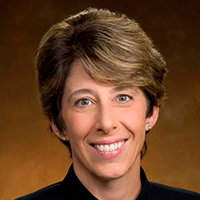
Laura Manz
Director Navigant Consulting
Evolving ISO Market Design: TX, CA, NY & Mexico
Laura Manz is a Director at Navigant Consulting in Operations and Performance Excellence with a focus on Transmission. She has over 30 years in the energy industry with management and field experience in grid operations and planning, regulatory policy, power plant operations and interconnection, distributed energy, and advanced technology. Laura began her career with Public Service Electric and Gas Company including development of the PJM Mid-Atlantic market and grid planning. She served as the Mid-Atlantic representative on the Northeast Seams Team, interacting with stakeholders that included ISOs, Planning Authorities, policy makers, and utilities in New York and New England. She was recruited to the California Independent System Operator as Vice President – Market and Infrastructure Development with responsibility for grid planning and interconnections, market design, regulatory policy, and NERC compliance. Under her leadership the CAISO issues its first Renewable Energy Transmission Initiative plan to reliably and cost-effectively develop and interconnect large and remote renewable energy projects with input from a wide range of stakeholders. She performed a Nodal Market Risk Assessment for ERCOT in Texas to support their conversion to a location-based marginal pricing model. Ms. Manz has advised clients on strategic planning, compliance, benchmarking for best practices, market risk assessments, competitive transmission opportunities, distributed energy, and advanced technologies.
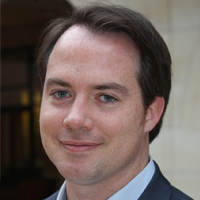
Colin Meehan
Director of Regulatory and Public Affairs First Solar
Grid of the Future: Centralized or Distributed?
Colin Meehan is Director of Regulatory and Public Affairs at First Solar, with responsibility over Texas and the eastern U.S. Most recently, Mr. Meehan led Comverge, Inc.’s demand response regulatory and market strategy in Texas and California. Prior experience includes serving as Environmental Defense Fund’s Policy Manager for U.S. Climate and Energy; Wholesale Settlement Analyst for the Lower Colorado River Authority focusing on ERCOT nodal market implementation; and as a wholesale power markets analyst for ICF International where he was the lead analyst for the development of the Regional Greenhouse Gas Initiative IPM model. Mr. Meehan earned a Bachelor of Arts degree in Math and Economics from the University of Rochester and a Master of Science degree in Energy and Earth Resources from the University of Texas at Austin.
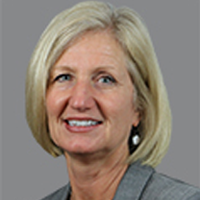
Cheryl Mele
Sr. Vice President and Chief Operating Officer Electric Reliability Council of Texas (ERCOT)
Evolving ISO Market Design: TX, CA, NY & Mexico
Cheryl Mele became ERCOT’s senior vice president and chief operating officer (COO) in January 2016. She oversees Grid Operations and Planning, Commercial Operations, and Governance, Risk and Compliance.
Prior to joining ERCOT, Ms. Mele served as deputy general manager and COO for Austin Energy, where she led its power operations, compliance and planning activities.
Ms. Mele brings 30 years of experience in the power industry to ERCOT. Her management and executive roles included both power generation and energy delivery before becoming COO at Austin Energy. Ms. Mele worked for General Electric as both an engineer and system programmer before joining Austin Energy in 1991.
A registered professional engineer in Texas, Ms. Mele has a bachelor’s degree in mechanical engineering from Union College in Schenectady, New York, and completed The Utility Executive Course at the University of Idaho.
While at Austin Energy, Ms. Mele served on the boards of the South Texas Nuclear Operating Company, the Texas Public Power Association and the RMEL, an electric industry education and networking trade group. She continues to serve as a board member and chair of the Austin Science Education Foundation, where she has been committed to preparing the next generation of scientists and engineers.
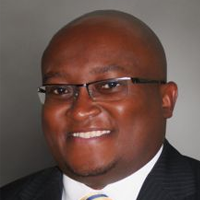
Peter Muhuro
Director of Energy Research and Strategies Pedernales Electric Cooperative (PEC)
Dr. Peter Muhoro is the Director of Energy Research and Strategies at Pedernales Electric Cooperative (PEC), the largest electric distribution cooperative in the United States. Peter works to strategize on the implementation of cutting-edge, cost-saving technologies such as energy storage, demand response, advanced lighting, and micro-grids, to mention a few. His role oversees initiatives that help the cooperative advance in technology while keeping rates affordable for the members. Prior to PEC, peter served as an Advisor at the Cooperative Research Network (CRN), the technology research arm of the National Rural Electric Cooperative Association (NRECA). Peter worked with the whole CRN research portfolio providing both technical and project management support. His specific areas of research were in Renewables, Power Generation, and Environmental Issues. His goals were to find innovative ways to advance technology in power generation while keeping rates low and addressing environmental issues.
Peter is an entrepreneur at heart. He has launched two small businesses, a consulting firm focused on addressing bottom of the pyramid issues and poverty reduction through the access of electricity and serves on the board of directors of two not-for-profit organizations and several committees. He is a sought after speaker both on the national and international arena. Peter holds a Ph.D. in Applied Physics with an emphasis in energy policy from the University of Michigan.

Bill Muston
Manager of R&D Oncor
Integrating Renewables into the Grid
Bill is the Manager of R&D at Oncor, a regulated electric utility delivering electric energy in the competitive market in Texas. The role of emerging technologies and ways in which they can be brought to fruitful use to improve electric delivery services are his core work. Energy storage in utility distribution systems, customer utilization of energy storage, and distributed control systems to integrate all forms of distributed energy resources into the grid are his focus 2016. Scope includes micro grids that provide both grid-connected and islanded operations. Bill graduated from The University of Texas at Austin with a B.S. in Electrical Engineering and an M.S. in Engineering.
O
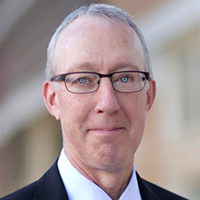
Todd Onderdonk
Senior Energy Advisor, Corporate Strategic Planning ExxonMobil
Changing Supply & Demand in the Energy Sector
Todd Onderdonk is the Senior Energy Advisor in ExxonMobil’s Corporate Strategic Planning Department.
Todd is a mainstay in developing ExxonMobil’s long-term energy outlook, which serves as the foundation for the Corporation’s strategic plans and investments. He is responsible for advising the Corporation on the nature of energy and technology solutions likely to be adopted around the world, along with assessing potential implications for energy markets and the Corporation.
Todd provides editorial oversight and is a principal author of the Outlook for Energy report, ExxonMobil’s annual publication concerning the energy future. He is also active in communicating ExxonMobil’s view on energy issues and the energy future to policymakers, investors, business groups, and civic organizations.
Todd has been with ExxonMobil for over 35 years, serving in a wide variety of executive management and senior advisory positions. He holds a B.S. in Industrial Engineering from Iowa State University and a M.B.A. in Finance from Indiana University.
He and his wife have three boys and reside in Texas.
P
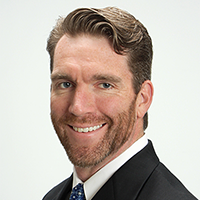
Russell Parker
Chief Executive Officer Phoenix Natural Resources
Russell Parker serves as the Chief Executive Officer for Phoenix Natural Resources. Mr. Parker began his career at Platt, Sparks & Associates, a petroleum engineering consulting firm. In 2001, he joined Hilcorp Energy Company as a Reservoir Engineer. During 12 years with the company, he held a variety of roles working assets, corporate reserves and A&D as a Reservoir Engineer. In 2007, he became the Asset Team Leader for Tom O’Connor which later became the South Texas Region. In 2009, when Hilcorp began its first unconventional project, Mr. Parker served as the Asset Team Leader executing development of the Eagleford program from inception to the ultimate sale to Marathon in late 2011. After the sale, he lead the first Asset Team to work the Appalachian basin for Hilcorp. In 2012, Parker joined Chief Oil & Gas based in Dallas and focused on the Marcellus. After serving as VP of engineering and acquisitions and SVP of engineering and operations, Parker was later promoted to President.
Mr. Parker has been recognized as an Outstanding Young Graduate of the Cockrell School of Engineering as well as a Distinguished Alumnus of the Petroleum Engineering Department at the University of Texas at Austin.
S

Jeffery Sabins
Senior Development Manager RES Americas
Grid of the Future: Centralized or Distributed?
Jeff Sabins is a Senior Development Manager at RES Americas.
Jeff oversees the development and financing of utility scale wind and solar projects in the Central US (SPP and ERCOT Markets). Jeff has completed development and financing of four large scale wind projects in Texas and Oklahoma. These projects represent $1.2B in financing and 658MW of generation. Jeff has an MBA from The University of Texas at Austin and a BS in Physics from the University of Colorado at Boulder.
RES Americas is a utility scale renewable generation development and construction company. RES employs roughly 400 people in the US and Canada and has constructed over 12,000 MW of wind and solar projects since its founding in 1997.
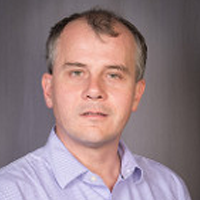
Erich Schneider
Associate Professor, Chevron Centennial Fellowship in Engineering No. 2 UT Austin Department of Mechanical Engineering
Grid of the Future: Centralized or Distributed?
Dr. Erich Schneider earned his Ph.D. in theoretical and applied mechanics from Cornell University in 2002. He joined the faculty of The University of Texas at Austin in 2006. Dr. Schneider is affiliated with the Nuclear Radiation Engineering Program.
Prior to joining the UT-Austin faculty, he was a Technical Staff Member in the Decision Applications Division at Los Alamos National Laboratory. His research interests include computational nuclear reactor theory, nuclear reactor and fuel cycle systems analysis, and radiation detection, specifically for nonproliferation applications. He is PI or Co-Investigator on grants from the Department of Energy (Nuclear Energy Research Initiative, GNEP Readiness, Junior Faculty Award Program), National Science Foundation / Defense Nuclear Detection Office (Academic Research Initiative), and the Nuclear Regulatory Commission. He maintains a consultant agreement with Los Alamos where he continues to pursue nonproliferation-related research. His students have conducted research at Los Alamos, Sandia, Oak Ridge and Idaho National Laboratories.
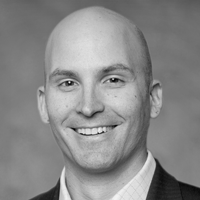
Dan Seif
Managing Director Grid Economics, LLC
Grid of the Future: Centralized or Distributed?
Dan Seif is a co-founder of Grid Economics, an investment strategy, policy, business development, and market insight advisory firm for the clean energy industry. Dan previously served as a senior consultant for similar clientele with for the legal services and consulting group, The Butler Firm.
Prior to that, Dan led the solar program as a Principal at Rocky Mountain Institute. At RMI, Mr. Seif was the lead author on the Dept. of Energy’s distributed solar finance roadmap to 2020, project lead on the groundbreaking Economics of Grid Defection report, and creator of the RMI Business Renewables Center.
Prior to RMI, Mr. Seif was with the equity investment firm, US Renewables Group, where he was directly involved in over $40MM in investment across several venture-stage companies. Mr. Seif began his energy career as the energy optimization and carbon emissions mitigation lead for the semiconductor manufacturer, Advanced Micro Devices (AMD).
Mr. Seif holds both a BS-with-distinction from the University of Virginia, an MS in chemical engineering from the University of Arizona, and an MPA with alternative energy focus from the Harvard Kennedy School.
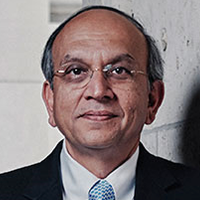
Mukul Sharma
Professor and W. A. “Tex” Moncrief, Jr. Centennial Chair Department of Petroleum and Geosystems Engineering, UT Austin
Mukul M. Sharma is Professor and holds the “Tex” Moncrief Chair in the Department of Petroleum and Geosystems Engineering at the University of Texas at Austin where he has been for the past 31 years. He served as Chairman of the Department from 2001 to 2005.
He has made contributions in the areas of hydraulic fracturing, injection water management, formation damage, improved oil recovery and petrophysics. He has published more than 400 journal articles and conference proceedings and has 23 patents. Sharma has a bachelor of technology in chemical engineering from the Indian Institute of Technology, Kanpur and an MS and PhD in chemical and petroleum engineering from the University of Southern California.
Among his many awards, Dr. Sharma is the recipient of the 2009 Lucas Gold Medal, the highest technical award from the Society of Petroleum Engineers, the 2004 SPE Faculty Distinguished Achievement Award, the 2002 Lester C. Uren Award and the 1998 SPE Formation Evaluation Award. He served as an SPE Distinguished Lecturer in 2002, has served on the Editorial Boards of many journals, and taught and consulted for over 50 companies worldwide. He has also co-founded two private exploration and production companies, an oil and gas software company and a consulting company.

Lenae Shirley
Senior Director, Technology Innovation and Market Adoption Environmental Defense Fund
Integrating Renewables into the Grid
Lenae is working at the nexus of technology, markets and policy. She is leading efforts with our demonstration partners to prove the benefits of clean technology innovations and is identifying trends and market opportunities that can be leveraged to accelerate the transformation of the electricity sector.
Lenae has spent 25 years helping companies take products to market, first in high tech and the last ten years in clean tech industries. For the last five years Lenae ran her own consulting business that focused on commercializing clean energy technologies. She holds a M.S. in Technology Commercialization from the University of Texas and a B.S. in Business Administration from the University of Florida.
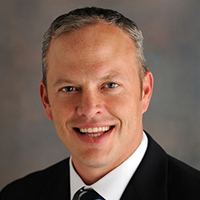
Steve Skinner
Co-founder, President and Chief Executive Officer Ursa Resources
Steve Skinner is President, CEO and Founding Partner of Ursa Resources Group II LLC. The current company operates in the Rockies; predominantly the Piceance Basin. The first iteration of Ursa was focused on the Bakken; amassing 120k acres prior to divesting in 2011. Prior to forming Ursa Resources Group, Mr. Skinner had his own consulting company that engineered some of the very first horizontal Eagle Ford shale completions. Previous to forming his consulting company, Mr. Skinner worked for Edge Petroleum where he was responsible for managing assets in South Texas & Arkansas; including technical evaluations, acquisitions & divestitures, and integrated field studies. Prior to joining Edge, Mr. Skinner worked for Southwestern Energy coordinating and engineering some of the first horizontal multi-stage completions in the Fayetteville Shale. Mr. Skinner began his career at ConocoPhillips where he served in a variety of engineering capacities including reservoir, production, completions and drilling engineering in the San Juan Basin, North Louisiana and East Texas. Mr. Skinner earned a B.S. Petroleum Engineering from The University of Texas at Austin and is a licensed Professional Engineer in the state of Texas. He currently serves on the UT Petroleum Engineering Advisory Board and was named a Distinguished Alumnus of the University in 2012. He is also a Board of Director for COGA (Colorado Oil & Gas Association)
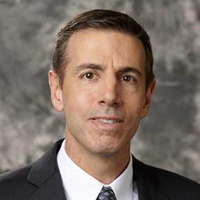
Dan Smith
Vice President, Electric Service Delivery Austin Energy
Integrating Renewables into the Grid
Dan joined Austin Energy in 2003 and is currently the Vice President of Electric Service Delivery (ESD). He is responsible for leading Austin Energy’s Transmission & Distribution organization. Dan has held various management positions at Austin Energy, including Director of Smart Grid and System Operations, Interim Vice President of Electric Service Delivery, Director of Transmission and Substation Engineering and Construction, and Engineering Manager of Substation and Relay Engineering. Dan is passionate about company transformation that starts with and is rooted in safety, and has been instrumental in leading and supporting several safety initiatives currently underway at the utility. Prior to joining Austin Energy, Dan spent 10 years with Advanced Micro Devices, where he focused on improving reliability and power quality of their electric supply in the United States, Germany, and Japan.
Dan earned a Bachelor of Science in electrical engineering from Texas A&M University in College Station. He is a registered professional engineer in the state of Texas, a Member of the Institute of Electrical and Electronics Engineers (IEEE), and has presented and authored numerous papers at technical conferences and educational venues.
T

Dave Tuttle
Energy Week Coordinator
Dr. Tuttle is a Research Fellow in the Energy Institute at University of Texas at Austin. His lifelong passion in the automotive space intersects with his decades of experience in information technology and interest in the diffusion of innovation in the research areas of Plug-In Vehicle adoption and integration with the grid, alternative fuel and advanced powertrain vehicles, the Smartgrid, and renewable energy systems. In the past, Dr. Tuttle advised the UT GM/DOE Challenge-X hybrid development team and was the team manager for the 2007 UT DARPA Urban Challenge Autonomous vehicle team. Today, he is one of the electric vehicle researchers in Austin’s Pecan Street Consortium/UT-Austin Plug-In Vehicle Smartgrid research project.
Dr. Tuttle is a former IBM and Sun Microsystems executive with a Ph.D in Electrical Engineering from the University of Texas at Austin, B.S. & Master of Engineering degrees with highest honors in Electrical Engineering from the University of Louisville and an MBA from UT-Austin. His diverse career has included leading the design of the Data Cache Unit of the high-performance microprocessor in the original IBM POWER-1 RISC/UNIX computer system, leading the team in the Apple/IBM/Motorola alliance that designed the first high-performance microprocessor used to launch the original Power MacIntosh, leading the team that designed the POWER2-SC microprocessor used in the 1997 IBM Deep Blue Supercomputer that beat World Chess Champion Garry Kasparov, and building from scratch Sun Microsystem’s Austin design center for power efficient highly multi-threaded CPUs.
W
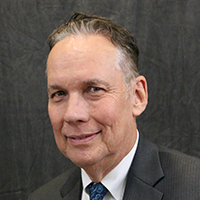
Paul Wattles
Senior Analyst – Market Design and Development Electric Reliability Council of Texas (ERCOT)
Integrating Renewables into the Grid
Paul Wattles is Senior Analyst in the Market Design and Development group at the Electric Reliability Council of Texas (ERCOT), the Independent System Operator for 85% of Texas electric load. The Market Design and Development team was formed in 2012 to advance ERCOT’s strategic plan and mission statement by dedicating resources to study and make recommendations for the structured evolution of the ERCOT market. Since its formation the group has led initiatives to enable Load Resource participation in the Real-Time Energy Market, integrate Fast Response Regulation Service into the ERCOT suite of Ancillary Services, and begin the redesign of Ancillary Services to better meet the needs of the grid of the future. Paul has been with ERCOT since May 2004, and is the former Supervisor of Demand Response and former Manager of Governmental Relations. He has over 13 years of electric industry experience with an emphasis on wholesale markets, advanced metering, demand response, and regulatory and governmental affairs; over a decade of private sector business experience; and six years of service as a Congressional aide in Washington, D.C. He is a graduate of the University of Arizona in Tucson, with a Bachelor’s degree in journalism.
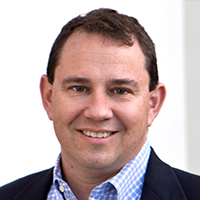
Michael Webber
Deputy Director Energy Insitute, UT Austin
Lunch Keynote: A Dialog on Trump Energy Policy
Michael Webber is Deputy Director of the Energy Institute at The University of Texas at Austin. In addition, he is the Josey Centennial Fellow in Energy Resources and serves as Co-Director of the Clean Energy Incubator and Associate Director of the Center for International Energy and Environmental Policy. Dr. Webber also is an Associate Professor of Mechanical Engineering, where he teaches and conducts research on energy and environmental issues.
Dr. Webber holds four patents and has authored more than 150 publications. He is on the board of advisers for Scientific American and is an originator of Pecan Street Inc., a public-private partnership for smart grid innovation and deployment. Previously Webber studied at the RAND Corporation and was a Senior Scientist at Pranalytica, where he invented sensors for homeland security, industrial analysis, and environmental monitoring.
Dr. Webber has a B.A. and B.S. with High Honors from UT Austin, where he has been honored for exceptional teaching. He has an M.S. and Ph.D. (Mechanical Engineering) from Stanford. He has been an American Fellow of the German Marshall Fund, a White House Fellowship finalist and an AT&T Industrial Ecology Fellow.
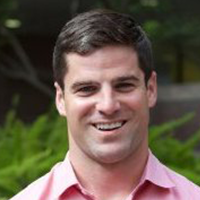
Mike Witte
Co-founder and Chief Operating Officer RigUp
Mike Witte is Co-founder and COO of RigUp, the largest online marketplace for oilfield services. RigUp was founded in 2014, and aims to connect operators with service providers promoting safe, efficient, and environmentally friendly operations. Prior to RigUp, Mr. Witte worked as a petroleum engineer for Encana Oil and Gas, providing a wide array of engineering support across operations and business development. Mr. Witte received his undergraduate degree in petroleum engineer from Texas A&M University in 2009, and his MBA from Columbia University in 2014.
